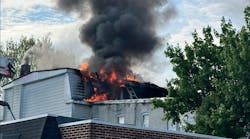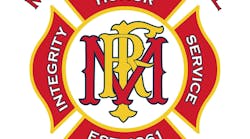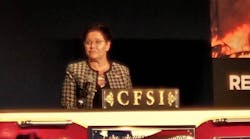So you think that going to fire alarms and CO detector runs are all you need to stay in business as a fire department? My friends, let me tear you out of the dark ages and hurl you headlong into the 21st century. People are sick and tired of spending great sums of money to have their firefighters sit around and watch cable TV. If all you have to offer is firefighting, you are destined for the scrap heap.
While I see us as a vital, integral part of the action, there are many in our communities who see us as marginal players. After all, fire always happens to the other guy—and I’m me, not the other guy. Far too many people, both inside and outside of government, consider us to be an expensive, if somewhat necessary, luxury.
I guess we do need a fire department, though. Think about it. Wouldn’t it be silly if there were no fire department and somebody’s house happened to catch fire? Someone would surely catch hell for that. So that is why the town’s people grudgingly pay the freight for those malingerers down on Main Street at the Fire Hall.
It is imperative that we do something to change the attitudes of the town’s taxpaying troops. For far too many years, we in the fire service have kept to ourselves, hidden away behind the locked doors of our fire stations. Anytime a citizen came in, we made them feel so uncomfortable that they hit the bricks quickly to get away from those nasty so-and-so's in the big brick building.
Here are a few things for you to consider based upon some of the successes I have seen:
- After a residential fire, have the fire chief send a follow-up communication to those who have suffered the loss. You can create a form letter for this or have a card printed up that expresses the thoughts and concerns of your department.
- Have someone from your staff track the post-fire problems that fire victims can often experience. A guide through the insurance/bureaucracy maze can create a friend for life. People tend to remember this type of kindness.
- Publicly praise members of your staff who go out of their way to help people, whether it is a part of their department job or in an off-duty capacity.
- Devote time to training your people on how to deliver service, not just the technical facts but also the ways in which to present these services to an often excited public. Teach them how to get along with people.
- This is a tough one to grasp, but let me suggest that you must welcome failures that point your department in the direction of future successes. Imagine what would have happened had somebody convinced Thomas Edison that it was stupid to buck the gas light people with his silly little “electric lightening device.” Rest assured that he did not get everything right the first time on any of his inventions.
- Teach our people to challenge tradition. While there are many good traditions, there are far more of a ridiculous “we’ve always done it that way” nature. Challenge your people to ask, “What if?”
- Apologize for the slightest error in service delivery by your staff. Remember that not only is the customer always right but that the customer always pays the freight for your operation.
These are just a few of the ways you can begin to generate a spirit of public service orientation among your departmental staff. Embrace them and encourage your staff to do the same thing. The dividends can be positively amazing.
And above all, do not give up any aspect of service in your community. You should actively campaign to make your department the key player in each of the following areas:
- EMS and paramedic delivery
- Hazardous materials response
- Code enforcement in all the specialty areas
- Public fire safety education
- Community safety education (energy, recycling, burn prevention, etc.)
- Rescue services (extrication, confined space, high angle, collapse, USAR, etc.)
- Any sort of training that will benefit any aspect of life in your community
Now if it seems like a tall order, then you have been paying attention. But if your fire department is going to survive and thrive in the future, you are going to have to grow and accept new missions. Or you can just fade away. The choice is yours.






